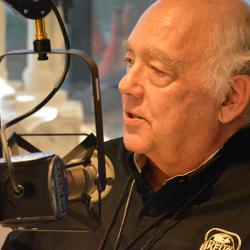In today’s News:
The Supreme Court is asked to intervene
Southern California’s South Bay Pentecostal Church, represented by a law firm doing pro bono work in Rancho Santa Fe, Calif., as the Freedom of Conscience Defense Fund, joined by the Chicago-based Thomas More Society, has petitioned the United States Supreme Court to intervene and issue an emergency injunction against California Governor Gavin Newsom. The attorneys are asking the high court to command him to cease and desist his shutdown of religious worship in California, in violation of the First Amendment’s constitutional guarantee that citizens may freely exercise their religious faith. So far, the South Bay United Pentecostal Church and its senior pastor, Bishop Arthur Hodges III, have failed to prevail in their lawsuit before both San Diego’s Federal District Court and the 9th Circuit U.S. Court Of Appeals. In the 9th Circuit the church lost an emergency appeal, 2-1 before a three-judge panel. Judge Daniel Collins sided with the church, filing a powerful 15-page dissent that declared the church deserves the relief it seeks. The South Bay United Pentecostal Church is asking to hold in-person worship services, fully subject to social distancing and other contagion-mitigation steps.
Physicians recognize the importance of spirituality
Four medical school educators have said that fully to address a patient’s needs, physicians should begin asking questions about the patient’s spirituality and religion. A May 19 opinion piece in the Annals of Internal Medicine was written by a group of medical educators: Doctors Kristin Collier, Cornelius James, Sanjay Saint, and Joel Howell. “is it time to more fully address teaching religion and spirituality in medicine?” assessing a patient’s religious beliefs is important to understanding fully the person. They also highlighted the significance of spirituality in America.
A governor attempts to stop a pro-life petition drive
Colorado is one of only seven states in the U.S. that allows abortion until the day of birth with no restrictions whatsoever. Volunteers across the state are aiming to change that as they collect signatures to get a measure on the 2020 ballot. These volunteers must collect 10,000 additional valid signatures by May 29th after turning in over 114,000 valid ones on March 4th. The state’s governor, Jared Polis, in the middle of the night, handed down an executive order changing the signature collection process for ballot measures. He explained that citizens ought to be able to participate in democracy and keep their constitutional rights while still being able to preserve their health and safety in the midst of the COVID-19 pandemic. Polis has declared that Colorado remains under a state of emergency through early June. Despite the governor’s stated intention to preserve rights and health at the same time, he ended his order with a single exception: Directive K. Directive K ordered that none of the changes he was making would apply to the pro-life campaign currently collecting signatures in-person. At a press conference a few days after Polis handed down his executive order changing the signature collection process, he claimed it would be “next to impossible” to collect signatures in person. And yet, despite this belief, he is forcing one campaign to do it anyway: the campaign to ban late-term abortions in Colorado.







